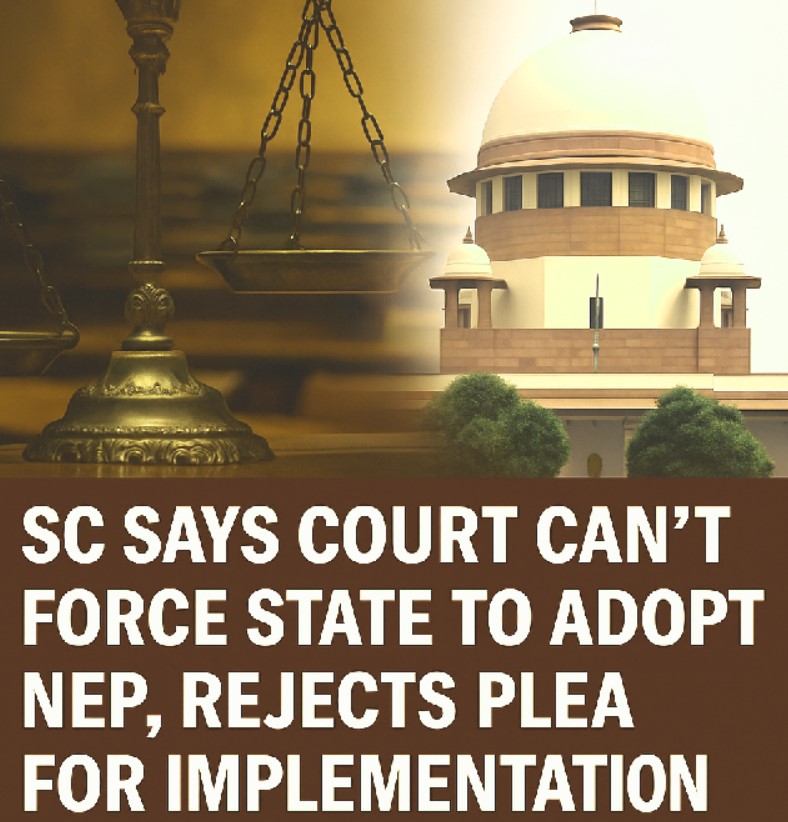Supreme Court Rejects Plea to Enforce NEP Implementation in States
Meta Description: The Supreme Court of India has dismissed a plea seeking to compel Tamil Nadu, Kerala, and West Bengal to implement the National Education Policy (NEP) 2020, stating that it cannot directly enforce such adoption.
The Supreme Court of India rejected a Public Interest Litigation (PIL), filed by advocate G.S. Mani, where he asked the states of Tamil Nadu, Kerala, and West Bengal to implement the National Education Policy (NEP) 2020, which was introduced by the Union Ministry of Education. The bench, consisting of Justices J.B. Pardiwala and R. Mahadevan, held any state cannot be forced to accept the NEP, but if any state takes or does not take any decisions on the implementation of the NEP that violate fundamental rights, the courts can intervene by way of judicial review.
The background of the petition is that the petitioner argued that the states did not sign the Memorandum of Understanding (MoU) with the Union Ministry of Education, thus not adopting the NEP. The petitioner argued that the failure to implement the NEP was a serious cause of public welfare, and violates the constitutional right to education.
Court’s Observations
Justice Pardiwala, discussing the petitioner’s standing, said that though Mani came from Tamil Nadu, he was living in Delhi and had no direct interest in the issue. And, while the court cannot compel states to implement the NEP, it can act where the state fails to protect against a violation of fundamental rights through action or inaction, at least in relation to the policy.
Impact of the Judgment
This judgment simply reinforces that states have autonomy in education, and highlights the judicial intervention may be limited. This means while the NEP is a central policy, its implementation will depend upon the individual states, and this means states can have discretion, provided it does not violate the fundamental rights of the citizens.
In Conclusion
The Supreme Court has reinforced the principles of federalism and the balance of power between the Union and states in India. Additionally, the ruling also emphasizes the role of the judiciary in protecting fundamental rights without going too far by intervening in an area reserved for the legislature or executive.
Keywords: Supreme Court, NEP 2020, Tamil Nadu, Kerala, West Bengal, National Education Policy, PIL, fundamental rights, judicial intervention, federalism, education policy, Memorandum of Understanding, Union Ministry of Education, constitutional right to education, Article 32, state aut
![]()

